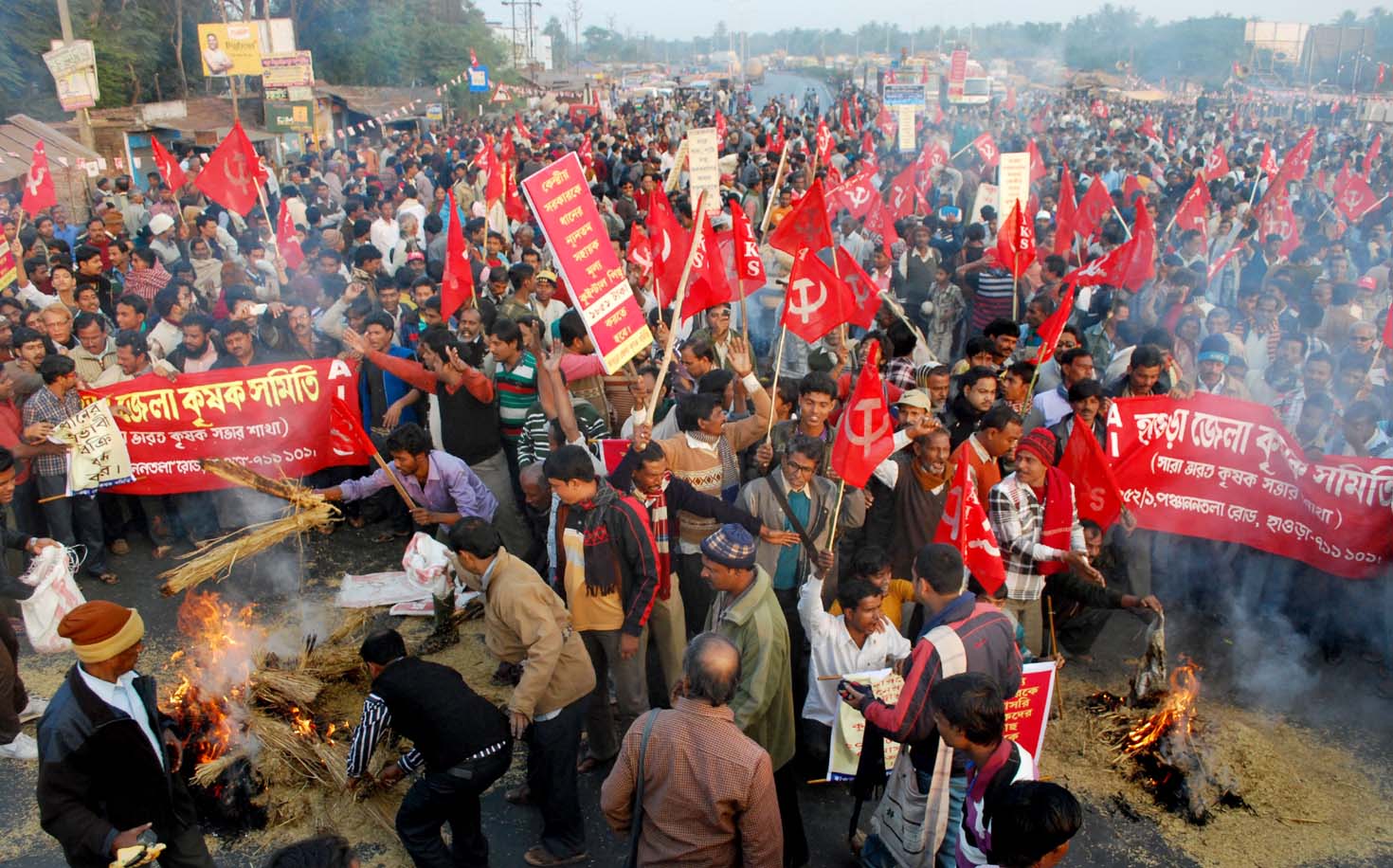
This Poush, No Smiles in Bengal Villages
From Our Special Correspondent in Kolkata
THIS is the season of smile for the peasantry of Bengal. The month of Poush, traditionally, is the month when peasants celebrate harvest rituals, prepare homemade sweets, exchange pleasantries with neighbours. The advent of winter brings with it whatever little sources of joy for them.
But this Poush, this December, the peasants are on roads -- in some places with exploding anger, burning crops; in others with despair. Paddy growers in West Bengal are being forced to sell their produce at prices much lower than the minimum support price. A large scale distress sale is having its toll in rural Bengal.
For this season, the minimum support price for paddy has been fixed at Rs 1360 per quintal. The state government, busy with unrestricted festivals, has added a bonus of only Rs 15 to that. But nowhere in the state are the farmers getting Rs 1375 for their crop. This has been recorded in the latest report of the agricultural marketing department of the state government. Even in official estimates, the price in only Rs 1266 in Burdwan, Rs 1190 in Birbhum, Rs 1070 in South 24 Parganas. The peasants are selling at lower prices in local markets. In most cases, the price is nearly Rs 300 less than the MSP.
The basic reason is the criminal absence of the state machinery in procurement. The chief minister declared that camps would be operated to buy paddy from the villagers, and declared ‘Farmers’ markets. But in reality, there is no sign of such camps or markets and the peasantry has been exposed to ruthless treatment by middlemen.
“In the period of Left Front government, panchayats used to buy our produce, even the self help groups bought from the fields”, said Sachin Das in Nadia, “Now the middlemen are dictating everything”.
According to farmers in many districts, there is a concerted effort to lower the prices of even finer qualities by deliberate refusal of the government to buy paddy and private businessmen pushing the prices further down. In many places, the middlemen are buying at distress price from the peasants only to sell it to rice mill owners at MSP.
The anger of the farmers manifested in Uluberia in Howrah when thousands of them blocked the National Highway. They were shouting slogans against the state administration. Hundreds of them were women.
“We mortgaged our jewelry to buy seeds and other inputs. But we are not getting prices enough to buy rice even for our food”, shouted the women. The panchayats, zilla parishads run by the TMC are in tandem with middlemen, creating havoc in the countryside.
This has come in the background of disastrous employment situation in villages. Despite much touting, the MGNREGA has miserably failed in West Bengal in the last three years. In terms of working days created, the figure for Bengal is much lower than the national average. The average number of working days created under MGNREGA scheme in Bengal is just 24.58, as against the national figure of 39.22. The rank is a poor 16th. Villagers have not been paid their dues.
AIKS state secretary Nripen Chowdhury said that the Mamata Banerjee government, drenched in corruption from tip to toe, has totally neglected the concerns of the farmers. “This government is forcing the peasantry to suicides, but we will turn it into struggles”, said Chowdhury.
In Uluberia itself, the blockade compelled the district administration to come to the spot and assure that camps would be organised immediately.


